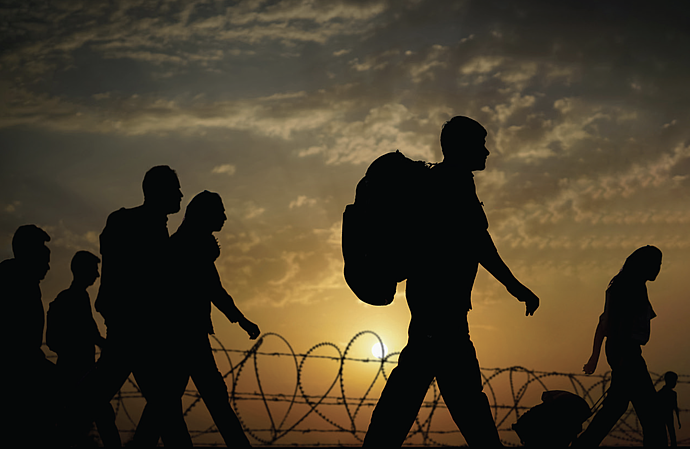
Displaced people’s perilous journeys: border violence as a public health issue
In celebration of the 200th anniversary of The Lancet, the number one journal in medicine worldwide, Didier Fassin, James D. Wolfensohn Professor in the School of Social Science, and Anne-Claire Defossez, Visitor in the School, were invited to contribute an article to a special edition of the publication.
Drawing on their research on migrants and refugees, conducted over 5 years at the border between Italy and France, which allowed them to trace the long journey from their home country and the numerous tribulations they faced, especially in Africa and Europe, Fassin and Defossez discussed how border violence also presents a public health concern.
They conclude that "externalisation and normalisation of violence, with both physical and mental health consequences, characterise the border regime. While non-governmental organisations such as Alarm Phone, SOS Méditerranée, Médecins Sans Frontières, Médecins du Monde, and others combat these issues, public health actions should also address them. It is indeed its role. In the same way that structural violence affecting socioeconomically disadvantaged people has long been recognised as relevant to public health, so should be border violence affecting displaced people."
Read more at The Lancet.


